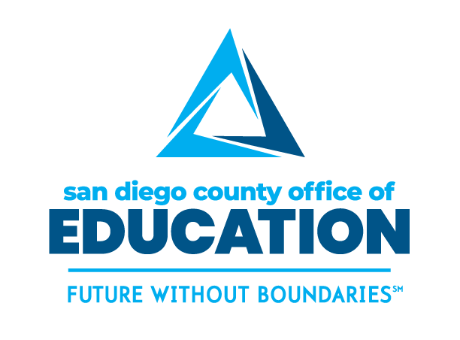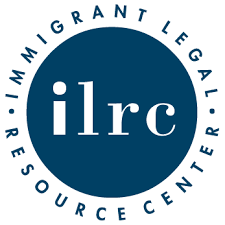As significant changes in immigration policy are enacted at the federal level, we understand and share the concerns of many in our community. The purpose of this page is to provide information about your rights under the law and resources aimed at supporting the safety and stability of your family.

Bureau of Children’s Justice
California Bureau of Children’s Justice (BCJ)
BCJ Fact Sheet – Also available in Spanish, Chinese, Korean, Tagalog, Vietnamese
BCJ Student & Family Checklist – Also available in Spanish, Chinese, Korean, Tagalog, Vietnamese, Arabic

San Diego County Office of Education
Refugee and Immigrant Support
Immigration Resources for Educators

Immigrant Legal Resource Center
Step-by-Step Family Preparedness Plan
ILRC Community Resources
Q&A – LMSV’s Response to Immigration Enforcement
1. What is the district’s policy regarding assisting ICE agents and permitting access to district facilities?
Like any other visitor, an immigration enforcement officer would first have to check in and register at the school office. From there, a school would not grant access to the campus or share student records or parent contact information without a valid warrant or person-specific court order.
The district’s board policies and admin regulations are available on our “immigration resources” webpage at www.lmsvschools.org/immigration-resources/.
2. Does the district ask families’ immigration status and/or would it share student records with ICE?
No. This is directly from our policy on immigration enforcement: “District staff shall not solicit or collect information or documents regarding the citizenship or immigration status of students or their family members or provide assistance with immigration enforcement at district schools, except as may be required by state and federal law.” (This is the law in California. See Education Code 234.7)
3. Is there any specific guidance the district is giving principals, teachers or parents following concerns about ICE agents showing up to schools?
At this time, we are notifying staff and families that the newly enacted presidential executive orders have no impact on our current policies and procedures. We will continue to ensure that our schools are safe and welcoming spaces for each and every one of our students and their families. Additionally, our social workers and community liaisons are offering workshops on a family’s educational rights under the law and the importance of having a preparedness plan in place should a guardian be detained by immigration. Much of this information is available on our website at www.lmsvschools.org/immigration-resources/
4. What are the biggest concerns with this change? Is there concern that enrollment or attendance might be affected?
My biggest concern is that many families will live in fear. Our schools are community hubs. They are places of belonging. School, more than anywhere else, should be a respite for children and families regardless of legal status, race, creed, or color. So, while changes in federal immigration enforcement policy have little effect on the school district’s internal policies and procedures, it’s clear that this issue has a significant impact on the sense of safety and security in the wider community. I am concerned about enrollment and attendance simply because the injection of fear into the community has the potential to cause people to avoid anything that may be associated with government. We want our families to know that the role of school has not changed and that all children have a Constitutional right to a free public education, regardless of legal status. Our schools remain safe and welcoming places for all children and their families.
The most important thing to know is that nothing has changed in terms of how LMSV responds to immigration efforts. Our schools are, and will remain, safe and welcoming places for ALL of our students and their families.
~ Superintendent David Feliciano
Know Your Rights
Children’s Educational Rights in California
- All children in the United States have a Constitutional right to equal access to free public education, regardless of immigration status and regardless of the immigration status of the students’ parents or guardians.
- All children ages 6 to 18 years must be enrolled in school.
- All students and staff have the right to attend safe, secure, and peaceful schools.
- All students have a right to be in a public school learning environment free from
discrimination, harassment, bullying, violence, and intimidation. - All students have equal opportunity to participate in any program or activity offered
by the school, and cannot be discriminated against based on their race, nationality,
gender, religion, or immigration status, among other characteristics.
Information Required for School Enrollment
- When enrolling a child, schools must accept a variety of documents from the student’s
parent or guardian to demonstrate proof of child’s age or residency. - You never have to provide information about citizenship/immigration status to have your
child enrolled in school. Also, you never have to provide a Social Security number to have
your child enrolled in school.
Confidentiality of Personal Information
- Federal and state laws protect student education records and personal information.
These laws generally require that schools get written consent from parents or guardians
before releasing student information, unless the release of information is for educational
purposes, is already public, or is in response to a court order or subpoena. - Some schools collect and provide publicly basic student “directory information.” If they do,
then each year, your child’s school district must provide parents/guardians with written
notice of the school’s directory information policy, and let you know of your option to refuse
release of your child’s information in the directory.
Family Safety Plans if You Are Detained or Deported
- You have the option to provide your child’s school with emergency contact information,
including the information of secondary contacts, to identify a trusted adult guardian who
can care for your child in the event you are detained or deported. - You have the option to complete a Caregiver’s Authorization Affidavit or a Petition for
Appointment of a Temporary Guardian of the Person, which may give a trusted adult the
authority to make educational and medical decisions for your child.
Right to File a Complaint
- Your child has the right to report a hate crime or file a complaint to the school district if he or she is discriminated against, harassed, intimidated, or bullied on the basis of his or her actual or perceived nationality, ethnicity, or immigration status.
If you have questions or need support, please reach out to your school’s counselor/social worker or call our Student Supports team at (619)668-5700 x6429.
For more information about La Mesa-Spring Valley School District’s response to immigration enforcement, please see the following district policies and regulations: BP 5145.43 and AR 5145.43.


